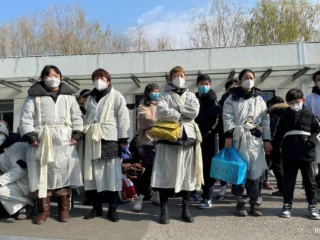Health experts have observed a growing trend of Extra-Pulmonary TB (EPTB) cases in Pune. According to the Pune Municipal Corporation (PMC), the city has reported 4,416 TB cases this year, with 78 resulting in deaths. Notably, 47% of these cases are EPTB, indicating a significant rise in this form of the disease.
What is Extra-Pulmonary TB?
Tuberculosis (TB) is an infectious disease caused by Mycobacterium tuberculosis, which spreads when an infected person releases the bacteria through coughing or sneezing. While TB primarily affects the lungs, it can also impact other parts of the body. When it does, it is referred to as Extra-Pulmonary TB (EPTB). EPTB can affect various organs, such as the pleura, lymph nodes, abdomen, genitourinary tract, skin, joints, bones, or meninges.
Challenges in Detection and Treatment
Dr. Prashant Bothe, the city TB officer, highlighted the challenges in detecting EPTB cases. “The notification of TB cases in the city has improved. Detecting EPTB cases is difficult but with advancement in the diagnostic facilities more EPTB cases are getting reported,” he said.
The PMC provides free treatment for TB at its hospitals. All diagnosed TB patients are included in the National Tuberculosis Elimination Programme (NTEP). Given that poverty and malnutrition are significant risk factors, these patients receive ₹500 per month during treatment for nutritional support under the Nikshay Poshan Yojana.






